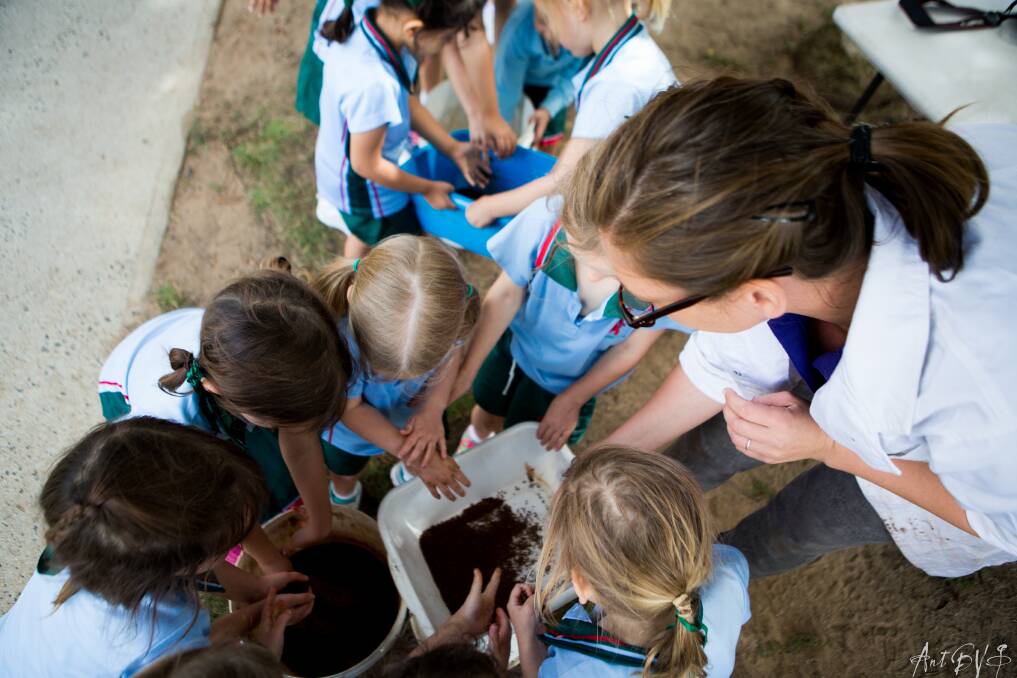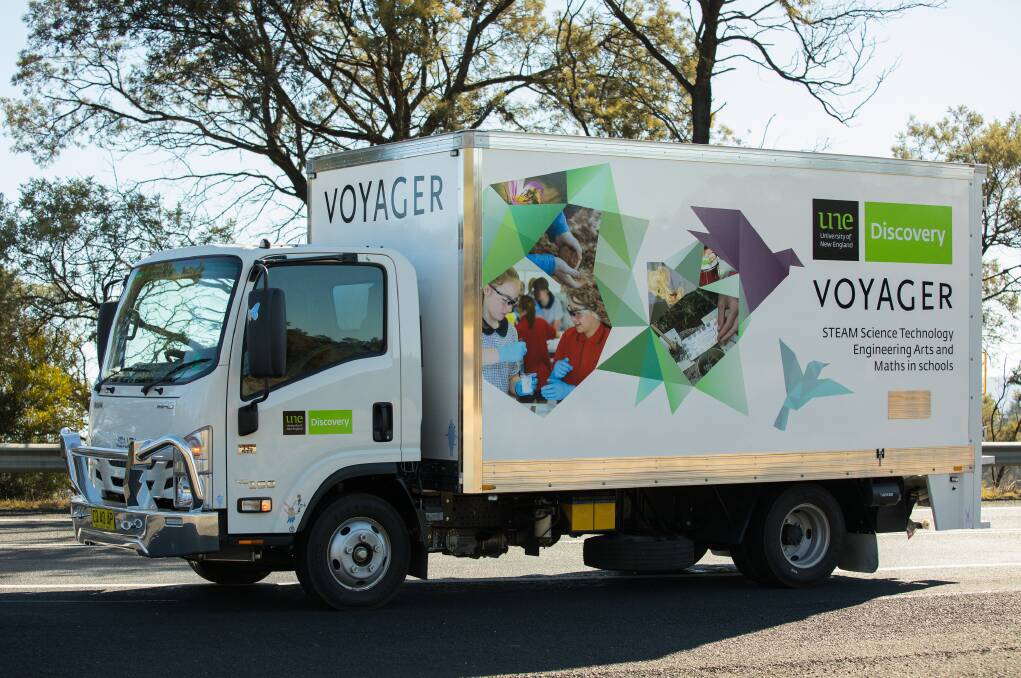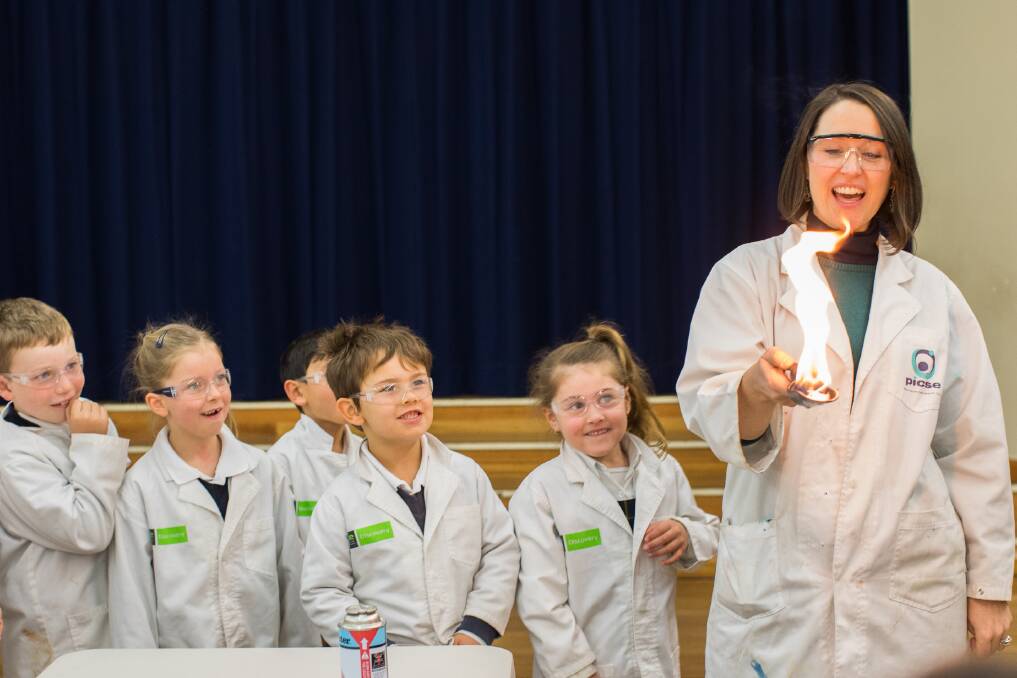Intervene early for a life of learning

Somewhere soon, in a regional town in northern NSW, a 4.5-tonne truck, loaded with microscopes, rocket makers, insect nets, exercise bikes, soils, and a team of enthusiastic educators and scientists, will be rolling into a local primary school.
Over the next five hours the students will take part in classroom and schoolyard activities that could include hydrogen balloon explosions, collecting and identifying ants or looking at what it is that keeps our soil alive.
This is the University of New England's (UNE) Discovery Voyager program, which aims to expand student experiences in STEAM (Science, Technology, Engineering, Arts Maths) for children aged 4 to 16. The demand for this program is so strong that it is now booked solid visiting regional schools until early 2020.

"The Voyager philosophy is about cultivating curiosity, creativity, collaboration, confidence and a can-do attitude," UNE Discovery Program Leader Dr Kirsti Abbott said. "We encourage a love of learning from a young age, and open up diverse worlds of opportunity to young regional, rural and remote Australians."
Voyager is just one of UNE's innovative programs that tackles the educational inequalities faced by rural communities. This is an issue of national significance; the recent Productivity Commission Report identified that Indigenous, regional and remote children were less likely to attend university, and that their declines in literacy and numeracy scores were of 'particular concern'.
Wendy Cohen from the Country Education Foundation quoted research that showed that regional students were 10 per cent less likely to have plans to go to university, and that parents in regional areas were up to 12.3 per cent less likely to expect their children to go on to higher education, even when educational backgrounds and socioeconomic status were taken into account.
She said one of the reasons was the lack of subject choice at country high schools.

"If a country student wants to study what would be considered a niche subject, there may be issues with getting enough numbers to warrant a class, justify a teacher, and find a teacher with the relevant qualifications.
"And there is also the aspect of peer support, which is so crucial at that age - being part of a tribe that has a common interest. If you have no one to share your dream with, that's another reason not to follow it.
"These things can have a big impact. We know across the board that if you know you aren't going to have the opportunity, that kills the dream. Reality tempers inspiration unfortunately."
One way UNE aims to give potential students the confidence to consider attending university, and imagining what opportunities it might offer them, is by getting out of the lecture theatre or laboratory and working closely with students of all ages, as well as their teachers and school communities.
Its Growing Regional and Agricultural Students in Science (GRASS) program has been running for 11 years and has seen real success in drawing students into higher education. Participants also achieve better results when they start university.
GRASS engages year 11 and 12 students from across the region in a program that includes a residential camp at UNE's main campus in Armidale, and industry placements with farms, laboratories and other locations where they can get a hands-on experience of what is involved working in these industries, opening up new educational and career possibilities.
"This GRASS experience has provoked me to think more about my university choices, my future career path and where I would like to end up," reported one of the participants in 2018. "It has also given me the motivation to do well in my school subjects this year, before I complete my HSC."
However the challenges don't end once the student gets to university. Ms Cohen said that often the geographical distance, and the financial impact of that, were the main hurdles.
"In the city you just get a bus or train and probably still live at home, but country students face often exorbitant costs of travel and rent," she said. "However it is good that this problem is so clear cut because we know we can raise funds to support the students that are interested."
This year the Country Education Foundation will support 580 students with an average grant of $2443. The foundation works to connect rural and regional students with a range of scholarships for further education, and also to provide peer support and mentoring programs once they get there to help address any social and cultural displacement.
"Community validation that you belong [at tertiary study] is important, as is peer support and mentoring programs. It's so crucial at that age to have someone to encourage you when things get tough," Ms Cohen said.
Both UNE and the Country Education Foundation are working to show that a high school student's aspirations for tertiary studies are valid and can be supported.
"If we can increase the number of 'first in family' university students coming from regional communities, we can change the dinner table conversation about lifelong learning," Dr Abbott said.
"This is all about changing the lives of those people who always thought that education wasn't for them."
- The University of New England is a partner with Australian Community Media in the Future Focus project.


